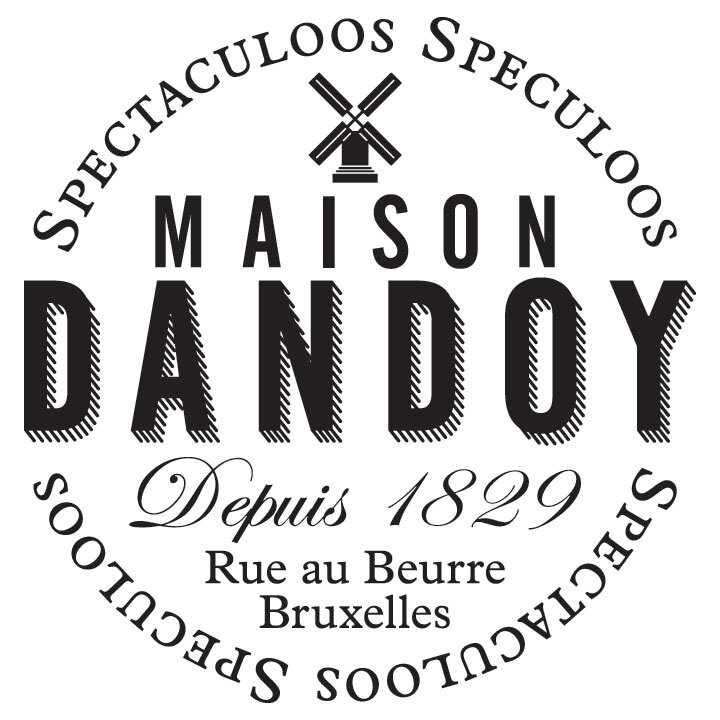



Maison Dandoy

Brussels-Capital Region, Belgium
August 2024
Food products
Manufacturing
Belgium,
France,
Netherlands The
La Maison Dandoy est une entreprise familiale portée par sept générations, enracinée dans la culture bruxelloise depuis 1829. Nous avons une passion pour la véritable nourriture, produite localement dans des conditions équitables. Nos biscuits se distinguent parleur qualité, leur saveur et leur générosité.Nous gérons notre entreprise avec soin et bonsens, tout en faisant preuve d’un savoir-faireinnovant. Nous offrons des plaisirs simplesainsi que des récits au-delà des biscuits, créantainsi des La Maison Dandoy est une entreprise familiale portée par sept générations, enracinée dans la culture bruxelloise depuis 1829. Nous avons une passion pour la véritable nourriture, produite localement dans des conditions équitables. Nos biscuits se distinguent par leur qualité, leur saveur et leur générosité. Nous gérons notre entreprise avec soin et bon sens, tout en faisant preuve d’un savoir-faire innovant. Nous offrons des plaisirs simples ainsi que des récits au-delà des biscuits, créant ainsi des liens entre les individus. Un esprit de famille et des rituels pleins de surprises. L’art de donner est notre moteur. Prenez (ou reprenez)votre temps, tel est notre rappel quotidien.
Overall B Impact Score
Governance 17.1
Governance evaluates a company's overall mission, engagement around its social/environmental impact, ethics, and transparency. This section also evaluates the ability of a company to protect their mission and formally consider stakeholders in decision making through their corporate structure (e.g. benefit corporation) or corporate governing documents.
What is this? A company with an Impact Business Model is intentionally designed to create a specific positive outcome for one of its stakeholders - such as workers, community, environment, or customers.
Governance 17.1
Governance evaluates a company's overall mission, engagement around its social/environmental impact, ethics, and transparency. This section also evaluates the ability of a company to protect their mission and formally consider stakeholders in decision making through their corporate structure (e.g. benefit corporation) or corporate governing documents.
What is this? A company with an Impact Business Model is intentionally designed to create a specific positive outcome for one of its stakeholders - such as workers, community, environment, or customers.
Workers 25.3
Workers evaluates a company’s contributions to its employees’ financial security, health & safety, wellness, career development, and engagement & satisfaction. In addition, this section recognizes business models designed to benefit workers, such as companies that are at least 40% owned by non-executive employees and those that have workforce development programs to support individuals with barriers to employment.
Community 21.5
Community evaluates a company’s engagement with and impact on the communities in which it operates, hires from, and sources from. Topics include diversity, equity & inclusion, economic impact, civic engagement, charitable giving, and supply chain management. In addition, this section recognizes business models that are designed to address specific community-oriented problems, such as poverty alleviation through fair trade sourcing or distribution via microenterprises, producer cooperative models, locally focused economic development, and formal charitable giving commitments.
Environment 18.1
Environment evaluates a company’s overall environmental management practices as well as its impact on the air, climate, water, land, and biodiversity. This includes the direct impact of a company’s operations and, when applicable its supply chain and distribution channels. This section also recognizes companies with environmentally innovative production processes and those that sell products or services that have a positive environmental impact. Some examples might include products and services that create renewable energy, reduce consumption or waste, conserve land or wildlife, provide less toxic alternatives to the market, or educate people about environmental problems.
Customers 2.7
Customers evaluates a company’s stewardship of its customers through the quality of its products and services, ethical marketing, data privacy and security, and feedback channels. In addition, this section recognizes products or services that are designed to address a particular social problem for or through its customers, such as health or educational products, arts & media products, serving underserved customers/clients, and services that improve the social impact of other businesses or organizations.